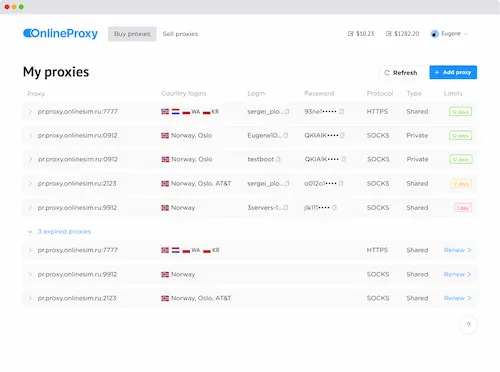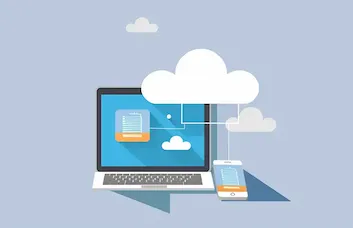Seychelles Proxy: High-Speed 4G LTE Mobile IPs
Private and shared proxies with a quality guarantee from 1 day for $1
Buy proxy Try it for freePrivate and shared proxies with a quality guarantee from 1 day for $1
Buy proxy Try it for freeUnlock unparalleled online freedom and trust with our cutting-edge mobile proxies. Experience the power of real mobile IPs, ensuring high confidence across websites and social media. Our Seychelles proxy options offer diverse locations, delivering exceptional speed and reliability for all your needs, whether rotating or non-rotating. Choose our premium mobile proxies Seychelles for seamless, swift access.
Minimum rental period for proxy ports from 1 day for $1
Our technical support will assist you within 15 minutes in case of difficulties
We guarantee the quality of our services and offer a refund if you encounter insurmountable problems
The choice is available by required country and with filtering by mobile operator and proxy type.
Ideal for working with social networks, message boards, ad networks.
Available countries — The whole world
Our mobile proxies connect to cellular operators, providing a high level of trust for your tasks













Change the IP of private proxies directly from the user interface or automate the process via API
Use proxies without limitations: we guarantee uninterrupted operation without disconnections, even with high traffic volumes!
Our mobile proxies use mobile operator IPs, reducing the risk of bans and captchas. Websites perceive you as a real user

Gain unrestricted, high-speed access to the Seychelles online ecosystem with genuine mobile proxies from onlineproxy.io. Our service utilizes an exclusive pool of real 4G/LTE/5G IPs sourced directly from SIM cards connected to the nation's premier mobile network operators, Latitude and Leapswitch. This direct integration with leading local carriers ensures your connection has the highest level of trust and legitimacy, appearing as a standard mobile device user to any website or online service. Unlike datacenter or residential proxies that are often flagged, our mobile proxies Seychelles provide an authentic digital fingerprint, making them the superior choice for critical business operations that demand reliability and anonymity. This infrastructure guarantees exceptional uptime and low-latency connections, essential for data-intensive tasks and real-time management.
The core benefit of using a mobile IP from a carrier like Latitude or Leapswitch lies in its inherent trust score. Major digital platforms, especially social media networks, are engineered to identify and penalize traffic from non-mobile sources. Our proxies bypass these filters entirely. This translates to significant operational advantages:
Harnessing a local Seychellois mobile identity opens up a wide range of strategic possibilities for businesses and developers. Appearing as a genuine user from within the country is critical for numerous tasks that are otherwise difficult or impossible to perform from abroad. Key applications include:
| Application | Use Case Example |
|---|---|
| Market Research & Data Scraping | Scraping local e-commerce sites for price intelligence, gathering data from Seychellois business directories, or monitoring travel booking platforms like Booking.com for localized pricing. |
| Ad Verification | Ensuring that paid ad campaigns are being displayed correctly to the target audience in Seychelles, without influence from foreign IP addresses. |
| Social Media Management | Operating multiple social media profiles for brand management or marketing, engaging with local communities as an authentic user. |
| Accessing Geo-Restricted Services | Using local banking apps, streaming services, or news portals that are exclusively available to users located within the Seychelles. |
The onlineproxy.io platform is built for flexibility, offering precise control over your IP identity. For large-scale data harvesting and web scraping, our automated IP rotation is invaluable. You can configure your Seychelles proxy to acquire a new, unique IP address by programmatically forcing the device to reconnect to the nearest Latitude or Leapswitch cell tower. This can be done on a timed interval or via a simple API call, ensuring your scraping bots are never blocked. Conversely, for tasks like account management or navigating a checkout process, a stable identity is key. Our 'sticky' (non-rotating) IP option a`llows you to retain the same mobile IP for an extended duration—from several minutes to the entire rental period. This session persistence ensures you remain logged in and your activities appear natural, providing the perfect balance of anonymity and consistency for any project.


